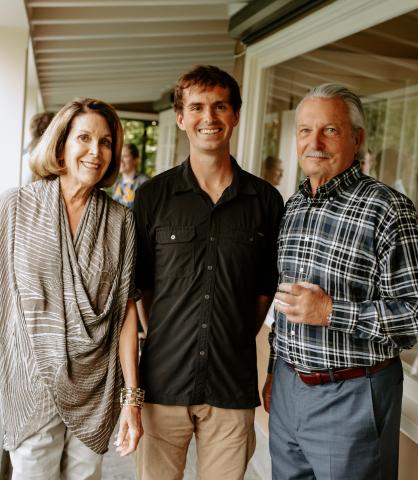On Wednesday, May 22, Ann and Ron Emmerson graciously opened their home in Portland to welcome 60 ARCS members and donors, along with representatives from our three university partners as we toasted our third-year scholars.
Each of the third-year scholars wrote a statement about the impact of their research and they were shared orally with all in attendance. Here is a sampling of the areas of their research:
- developing more effective treatments for Parkinson’s Disease
- improving hurricane forecasting capabilities
- developing clean fuels for the future using modular, solar-driven methane processing technologies
- understanding the role of toxins causing infections and diseases and ways toxins may actually be useful in defenses against bioterrorism or to deliver drugs more effectively into humans
- understanding dune erosion due to hurricanes or nor’easters and how to mitigate those changes
- improving light-emitting technologies to reduce energy consumption
- ecological restoration and forest resilience after fires and timber harvest
- brain mechanisms underlying tolerance to opioids
- Phytoplankton’s influence in the oceans
- postpartum breast cancer in young woman within 10 years of weaning
- understanding the global carbon cycles and their effects on climates
- using toxicity testing and DNA sequencing to understand the impacts of nanotechnologies to help us implement nanotechnologies without undesirable impacts
- Elucidating mechanisms of Alzheimer’s Disease by studying the impacts of age, diet, and hormones in the aging brain
- defining fundamental pathways preserving genome integrity by repairing DNA damage and preventing infertility
- developing new tools to study the metabolism in brains, using fluorescent protein biosensors to better understand when and why things go wrong
- electrical engineering, with a focus on hardware advances for biomedical sensing, consumer electronics, and 5G communication
- understanding glial cells’ relationship to brain diseases such as MS
- investigating species’ abilities to adapt to unpredictable environments, aiding in their survival
- screening fungi associated with Oregon Douglas Fir trees for human health applications in medicinal drugs
- understanding comorbid PTSD and addiction and developing pharamacological strategies and treatments
- understanding the effects of ocean acidification on oysters and their ultimate harvest and methods to reduce ocean acidification
The breadth and depth of the scholars’ research renews our hopes for improved futures on many fronts. It is an honor to be able to support such brilliant researchers in such a wide variety of fields of scientific, engineering, and medical endeavors.
The evening was artfully planned by Laurie Griff and Janis Harrison, with help from Kathleen Ames, Joan Foley, and Anne Weaver.
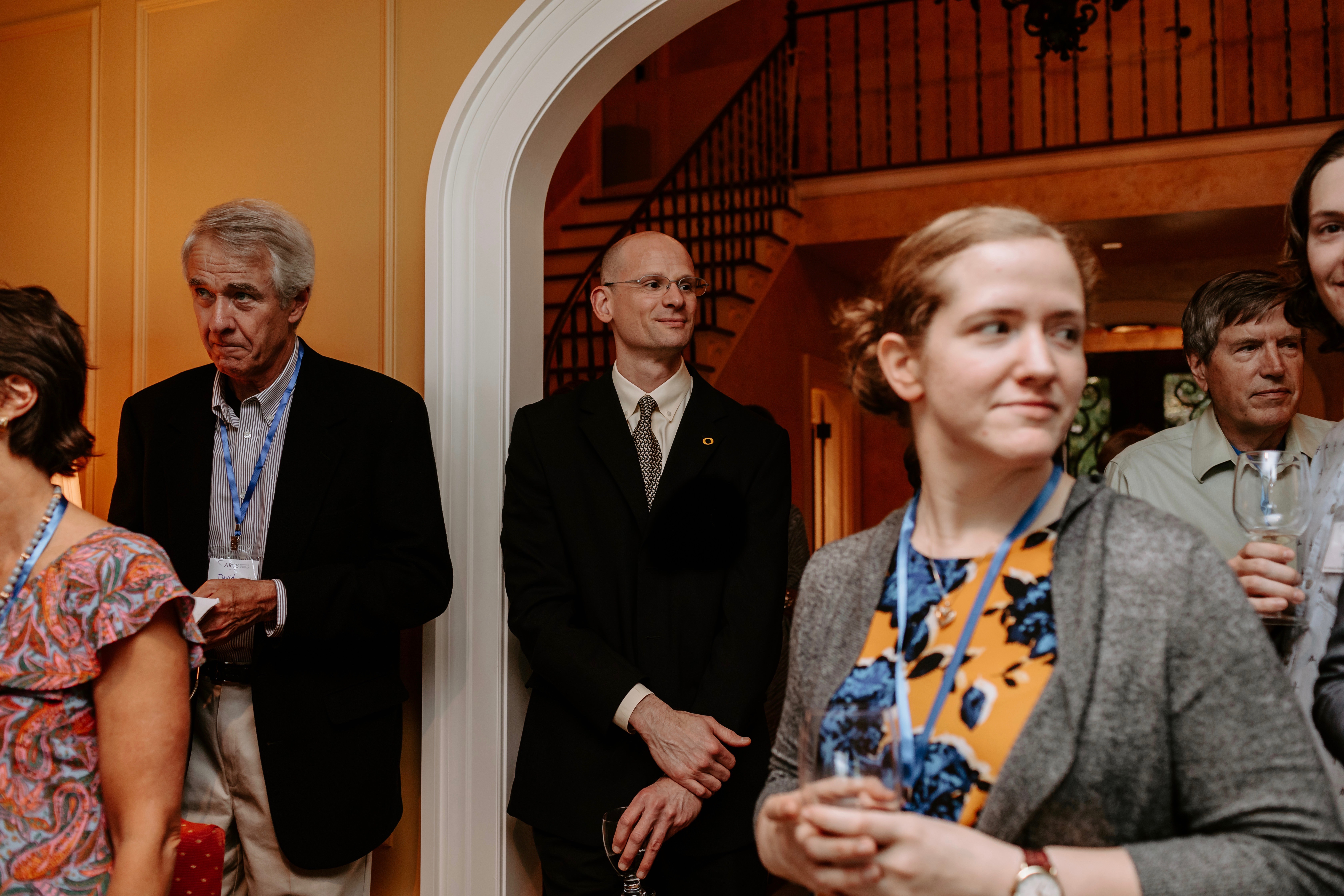 |
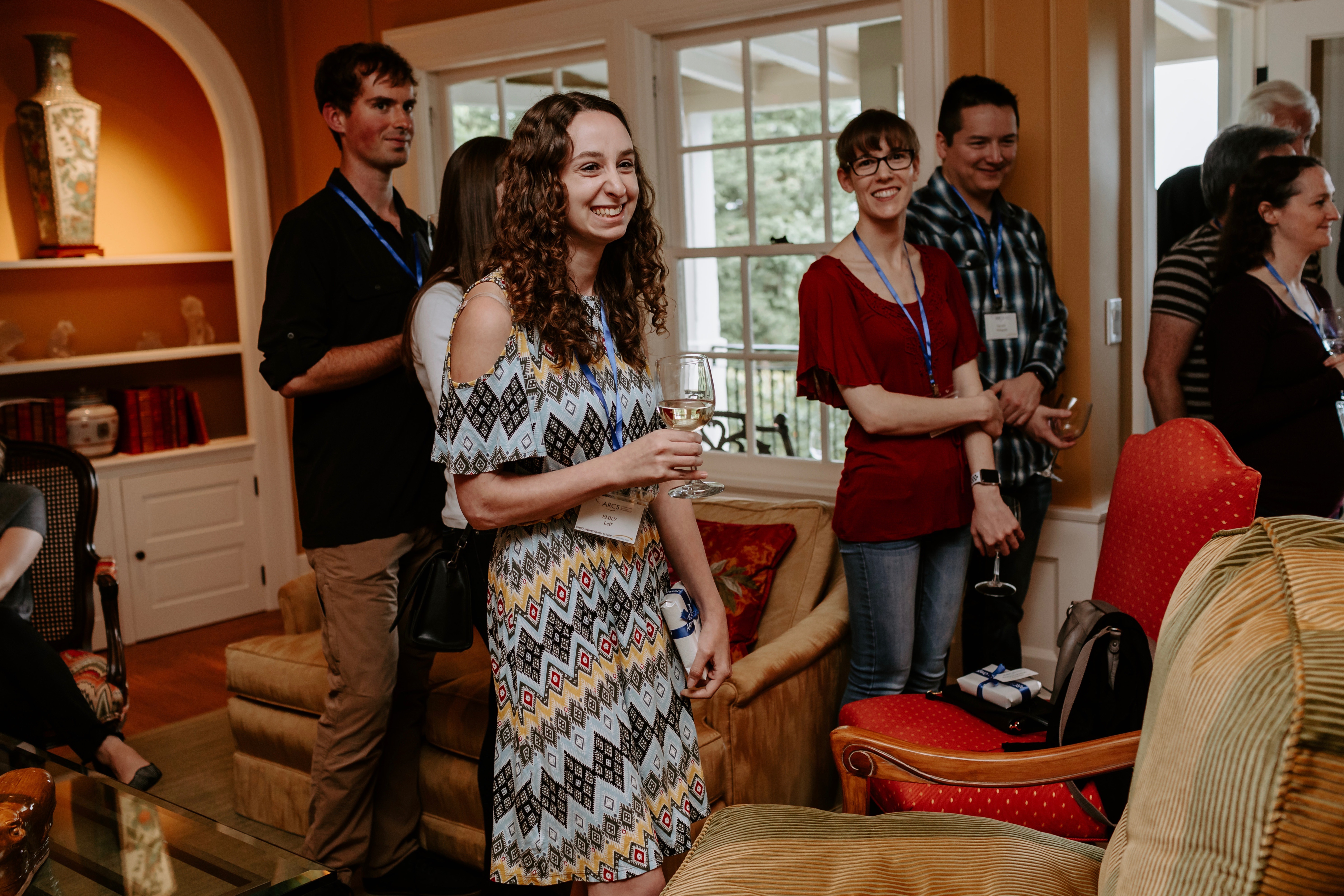 |
 |
 |
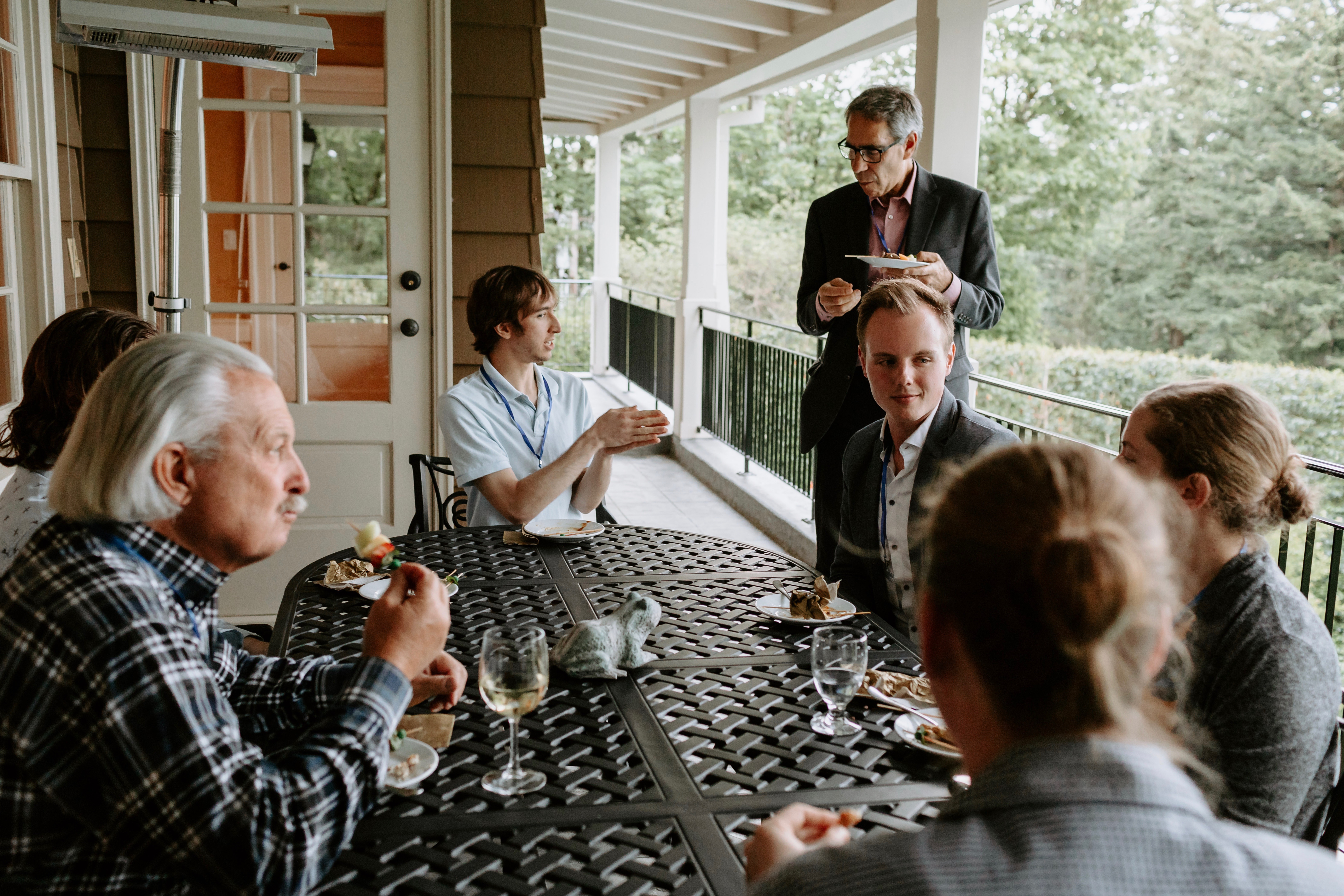 |
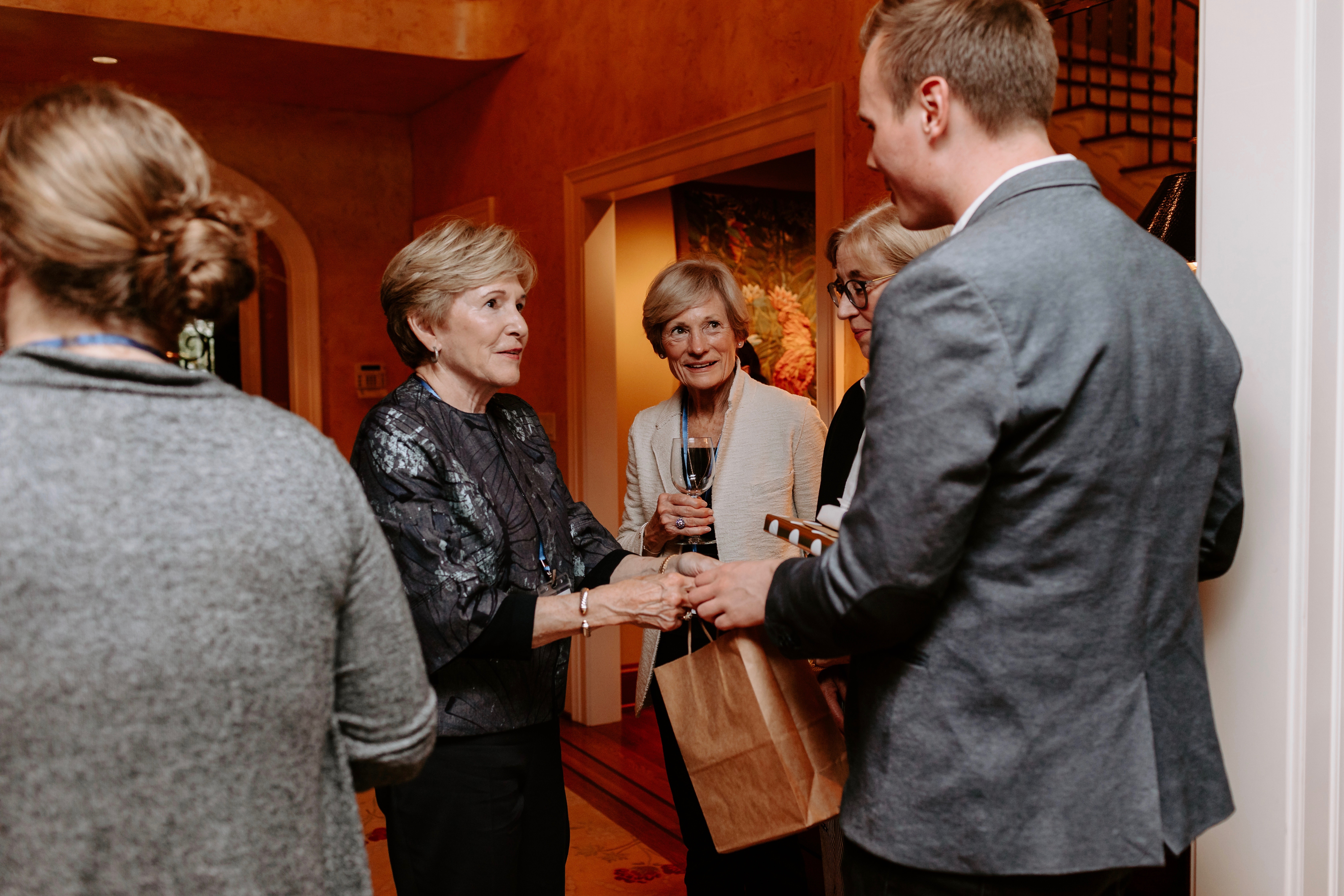 |
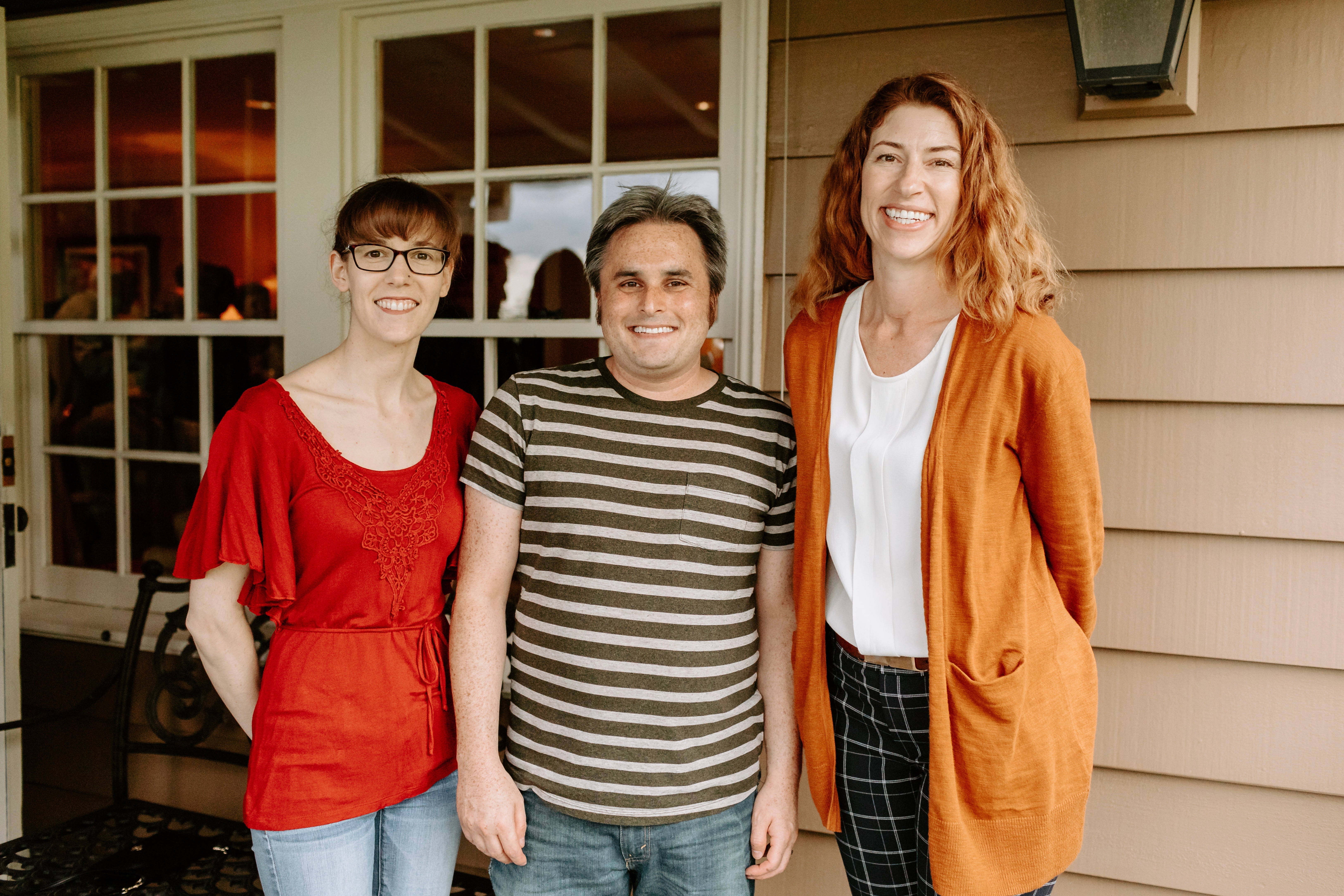 |
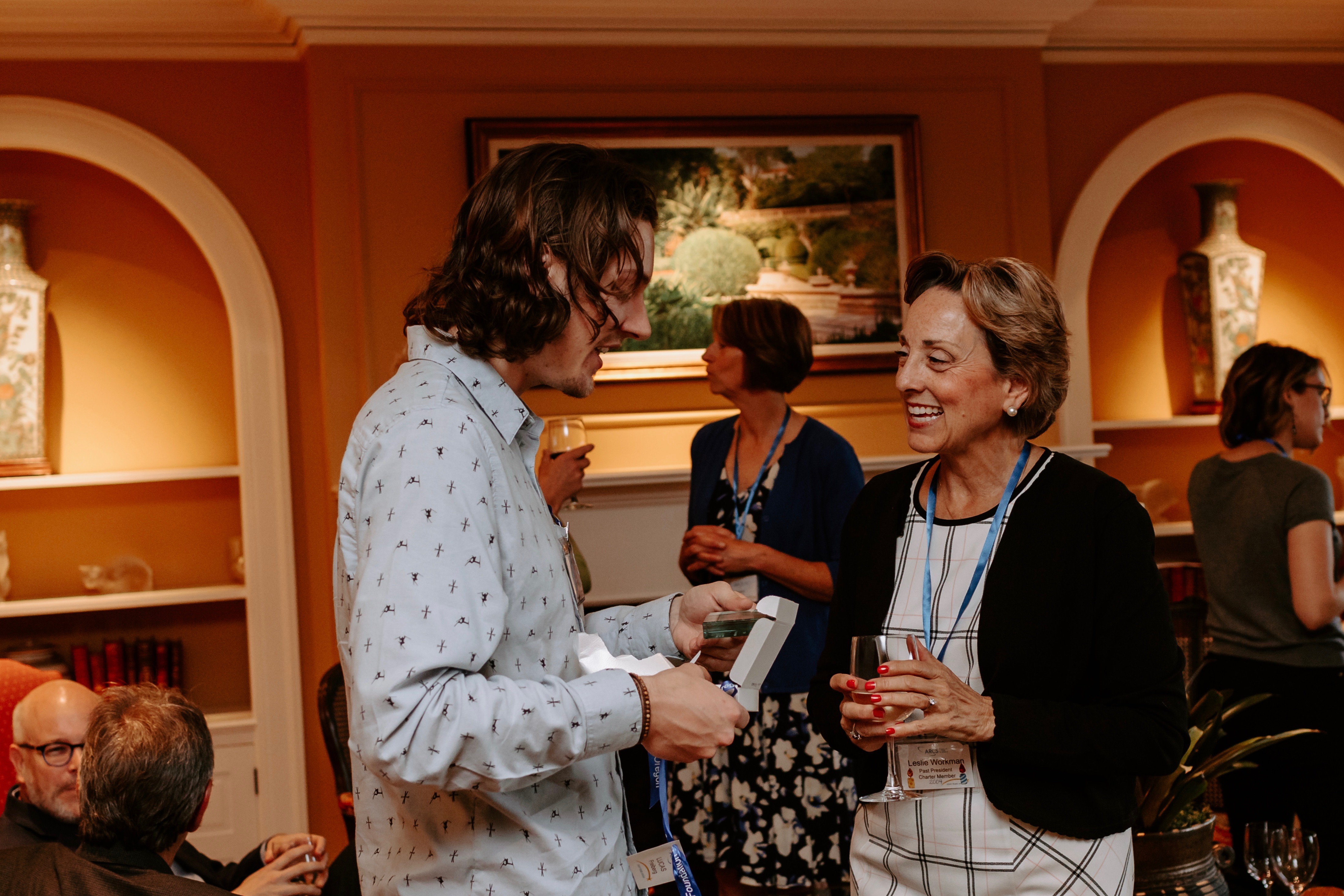 |
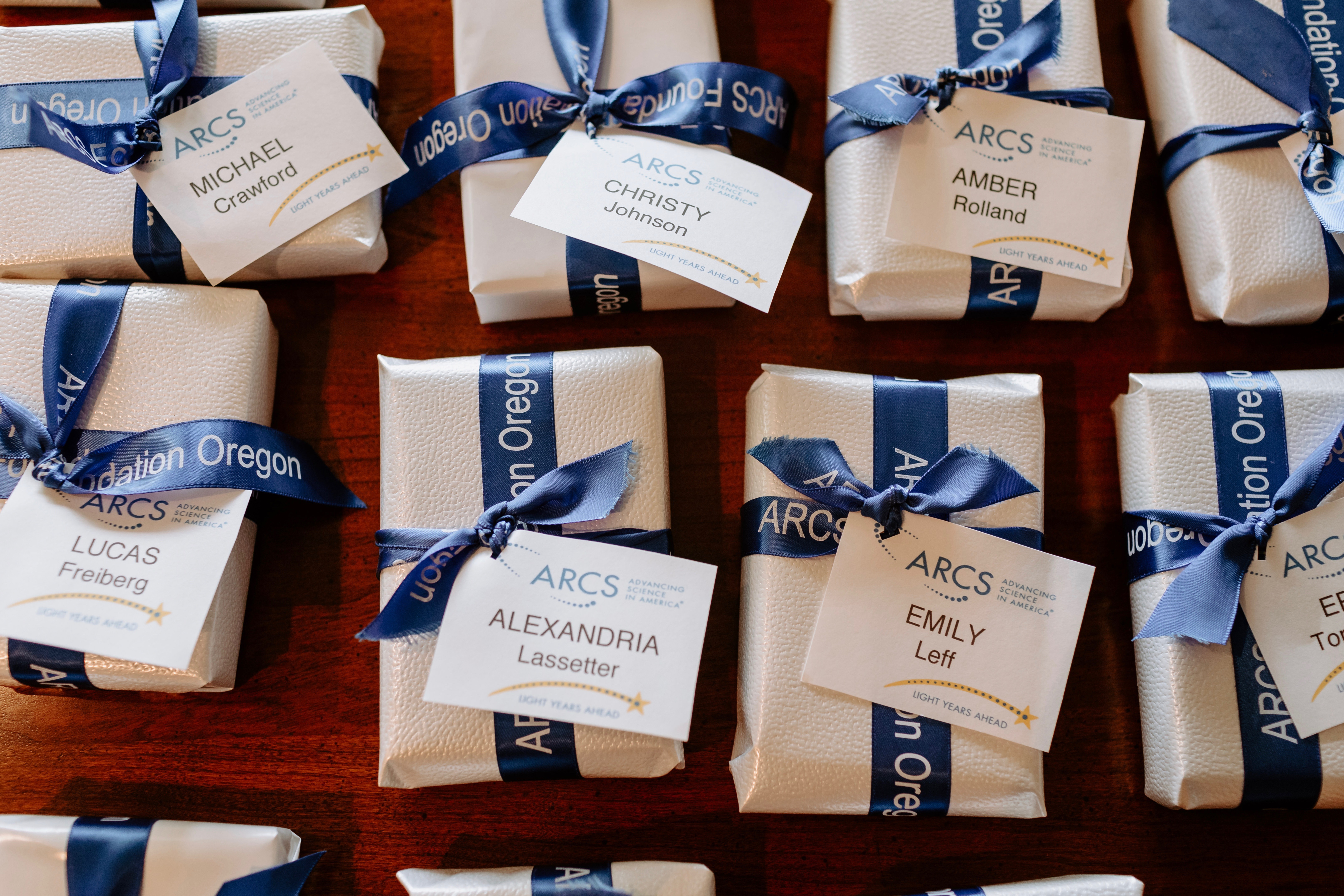 |

